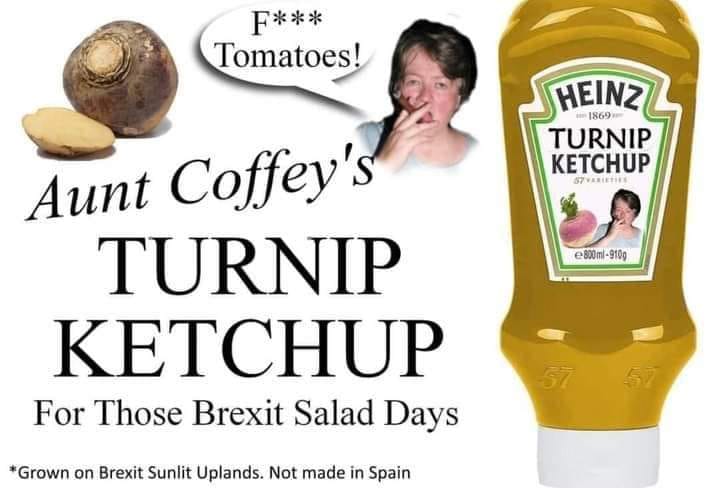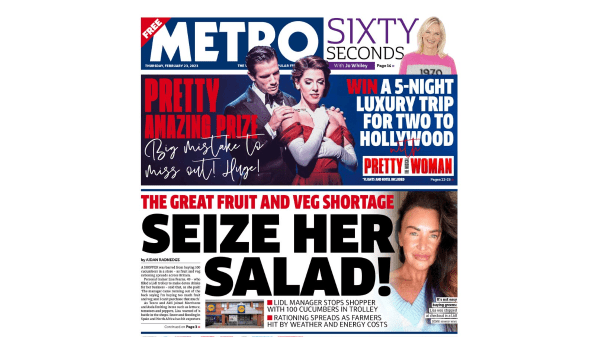I remember back in June 2016, when the British electorate, by a narrow majority, voted to have their nation withdraw from the European Union (EU): a move nicknamed Brexit.
“Wow!” I also remember thinking. “What a terrible idea!”


Brexit proved to be an even more divisive issue among the British than abortion and gun control are over here. Some people have decided simply not to bring up the subject at dinner parties.
In recent days, produce shortages in the U.K. have become a topic in the consumer media. Major retail grocery chains, including Tesco, Asda, Morrisons, and Aldi, have imposed customer purchase limits on salad vegetable items. Britain’s Tesco joins rivals in rationing salad vegetables | Reuters
If you shop at Tesco, you can’t buy more than three tomatoes, according to Reuters.
“In the winter months the UK imports around 95% of its tomatoes and 90% of its lettuces, most of them from Spain and north Africa, according to trade group the British Retail Consortium (BRC),” reports the BBC. Why is there a shortage of tomatoes and other fruit and vegetables in the UK? – BBC News
Some critics say Brexit is the cause (coining the unpronounceable nickname “Vegxit”), although more level-headed sources cite other factors: disrupted harvests in Southern Europe and North Africa as a result of unseasonal weather, as well as reduced domestic greenhouse production because of higher energy costs this winter.
One woman was deterred from buying 100 cucumbers (to make detox drinks for her business) in a Lidl. The Metro tabloid seized on this with its customary glee, with the headline, “SEIZE HER SALAD!”
Not everyone in the British population finds this equally dismaying. “I have preempted the national food shortage by selflessly not eating salad for three decades. We’re all in this together,” Twittered one patriot.
It’s not bad news for everybody. Environment secretary Therese Coffey suggested turnips as an alternative, leading to shortages of that item as well. Supermarkets run out of turnips after Tory minister tells Brits to eat them to avoid shortages | The Independent
One meme floating around on Facebook satirizes her remark, including a label for “turnip ketchup.”


It reminds of when I was a student in England in the late 1970s. In those days, vegetables in winter really did mean winter vegetables.
Ksenija Simovic, a senior policy adviser at Copa-Cogeca, a group which represents farmers and farming cooperatives in the EU, said Brexit wasn’t the main cause of the shortage but hadn’t helped, according to the BBC.
Simovic points out that if there is a shortage of produce, the available supply is simply more likely to remain within the Single Market (meaning: “Not Britain”).
“It doesn’t help that the UK is out of the EU and single market, but I don’t think this is the primary reason the UK is having shortages,” Simovic added.
Actually, the full impact of Brexit changes on fresh produce imports from the EU has yet to be felt.
Customs declarations are required, notes the BBC, but border controls are not due to be implemented until January 1, 2024. Fresh produce imports from Morocco, which is outside the EU, are already subject to border checks.
Even so, I still think Brexit was a terrible idea. At this point, 54 percent of the British population agrees with me.



